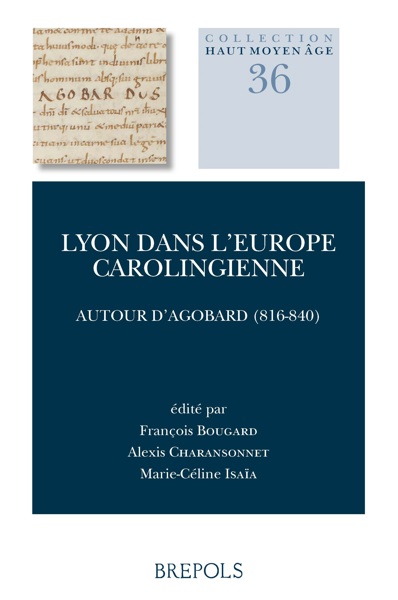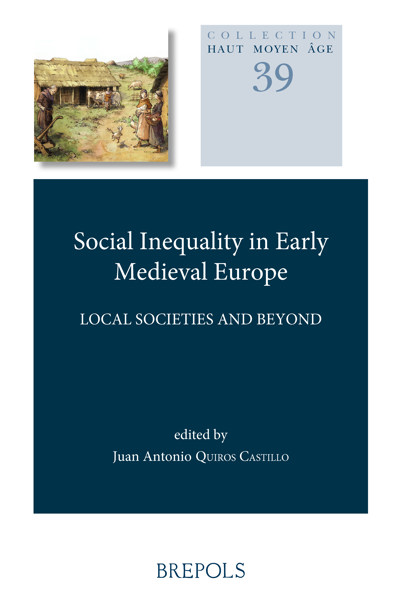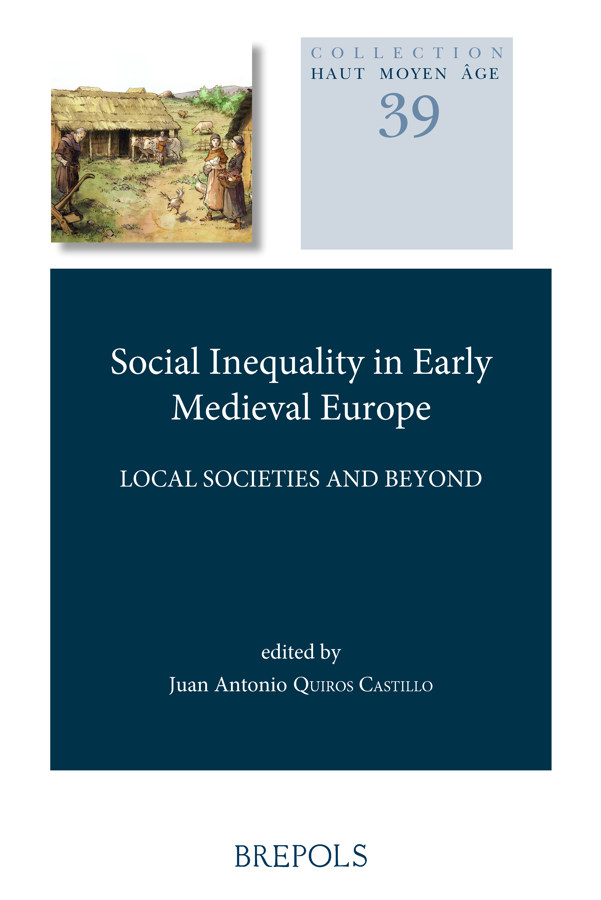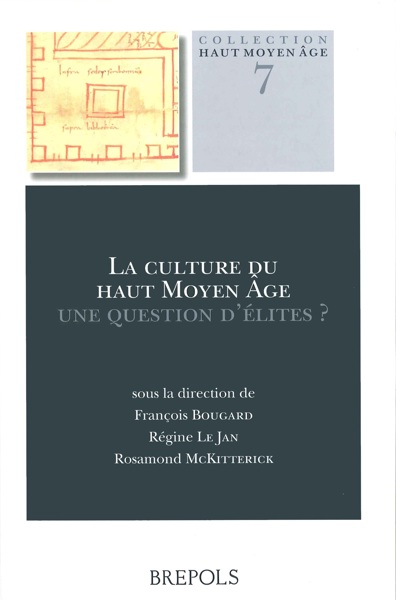
Social Inequality in Early Medieval Europe
Local Societies and Beyond
Juan Antonio Quirós Castillo (ed)
- Pages: 360 p.
- Size:156 x 234 mm
- Illustrations:87 b/w, 5 col., 11 tables b/w.
- Language(s):English
- Publication Year:2020
- € 85,00 EXCL. VAT RETAIL PRICE
- ISBN: 978-2-503-58565-9
- Paperback
- Available
- € 85,00 EXCL. VAT RETAIL PRICE
- ISBN: 978-2-503-58566-6
- E-book
- Available
A major contribution for the analysis of social inequality in history.
“Theoretically and methodologically, this collection makes a significant contribution, specifically for understanding the period before 1000, and more generally by examining the role of local communities in the processes of social complexification. It is of relevance to anyone interested in the history of everyday life.” (STUART BROOKES, in Medieval Archaeology, 65/1, 2021, p. 183)
“This is a political book, in the best sense of the word. By setting social inequality at the core of the authors’ scope, it not only draws the attention on a key issue for present day, but also proves one more time that history, even that of a (relatively) distant past such as the Early Middle Ages, can and must take its own contribution in these debates.” (Francesco Veronese, in The Medieval Review, 21.11.30)
“This is a very good book, deriving from a conference held in Vitoria-Gasteiz in 2016, and it includes some excellent individual papers (…) Readers will be indebted to the contributors for demonstrating, in many and varied ways, through material culture and written comment, the existence of these upper levels of peasant society.” (Wendy Davies, in Early Medieval Europe, 30/2, 2022, p. 317)
Juan Antonio Quirós Castillo is professor of Medieval Archaeology at the University of the Basque Country (Spain), Honorary Research Associate at the Institute of Archaeology of the University College London (UK), and editor of the series Documents of Medieval Archaeology. He is the author of different books, including Arqueología de una comunidad campesina medieval: Zornoztegi (Álava), 2019; Social complexity in Early Medieval Rural Communities. The north-western Iberia archaeological record, 2016 and El poblamiento rural de época visigoda en Hispania. Arqueología del campesinado en el interior peninsular, 2013.
The goal of this book is to discuss the theoretical challenges posed by the study of social and political inequality of local societies in Western Europe during the Early Middle Ages. Traditional approaches have defined rural communities as passive bodies, poor and unstable in the framework of a self-sufficient economy. In the last few decades, social approaches both in medieval history and archaeology have neglected the opportunity to re-evaluate the role of peasantry and other subaltern groups, even where new written and material evidence has challenged traditional assumptions. Conversely, scholars focussing on elites and aristocracies have promoted powerful research agenda.
As a consequence of the 2007-2008 recession, the social sciences began to be interested in social and economic inequality, opening up new avenues for a reassessment of social history. The early medieval period has been identified by numerous scholars as a key arena for the analysis of political complexity and social inequality in long-term perspective.
The study of local societies has become one of the most fruitful areas for innovative research in medieval archaeology and history, using approaches related to micro-history. This book, dedicated to Chris Wickham, is formed of fourteen papers centred on early medieval local communities drawing on both written and material records, which identify complex frameworks of social inequality at the local scale.
Preface
Juan Antonio Quirós Castillo, Equal and Unequal Societies in Early Medieval Europe. An Introduction
State Formation and Socio-Political Complexity
Julio Escalona, Towards an Archaeology of State Formation in North-Western Iberia
Robin A. Beck, Maize, Mounds, and Cosmos. Durable Inequality in the Mississippian World (AD 1000-1250)
Economic Specialization, Elite Demand and Social Inequality
Sauro Gelichi, Pottery as Inequality? Systems of Production and Distribution in North Italian Societies During the Early Middle Ages
Francesca Grassi, Social Complexity in Peripheral Areas in the Light of Pottery Production Between Sixth and Tenth Centuries (Alava, Basque Country, Spain)
Edith Peytreman, Indications of an Estate Economy from a Renewed Analysis of Sites of Rural Settlements
Catarina Tente, Social Complexity in Local Communities During the Tenth Century in Central-Northern Portugal. Negotiation and Opposition
Richard Hodges, The Primitivism of the Early Medieval Peasant in Italy?
'Small World' and Social Inequalities
Jean-Pierre Devroey and Nicolas Schroeder, Land, Oxen, and Brooches. Local Societies, Inequality, and Large Estates in the Early Medieval Ardennes (c. 850–c. 900)
Igor Santos Salazar, Fiscal lands, Rural Communities and the Abbey of Nonantola. Social Inequality in Ninth-Century Emilia (Italy)
Fabio Saggioro, Rural Communities and Landscapes in Northern Italy (Ninth-Twelfth Centuries AD)
Iñaki Martín Viso, Unequal Small Worlds. Social Dynamics in Tenth-Century Leonese Villages
Alvaro Carvajal Castro, Collective Action and Local Leaderships in Early Medieval North-Western Iberia. Ninth-Eleventh Centuries
Juan Antonio Quirós Castillo, Village Formation, Social Memories and the Archaeology of Rural Communities in North-Western Iberia
Carlos Tejerizo-García, The Archaeology of the Peasant Mode of Production. Peasant-Based Societies in Central and Northern Iberia During the Early Middle Ages
Chris Wickham, Conclusion




